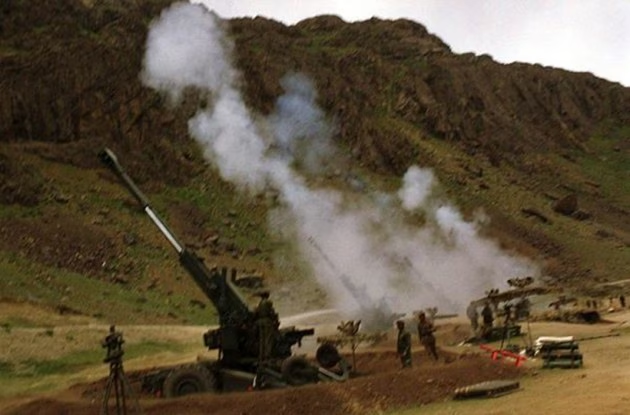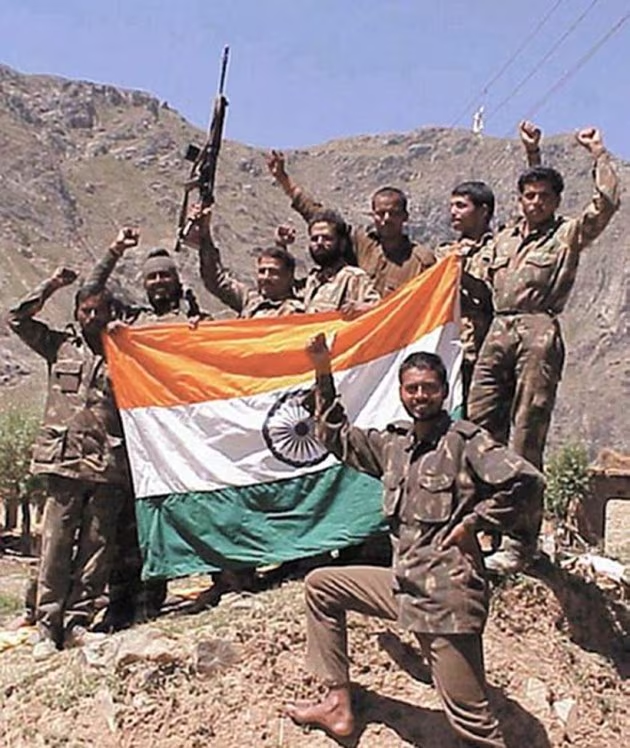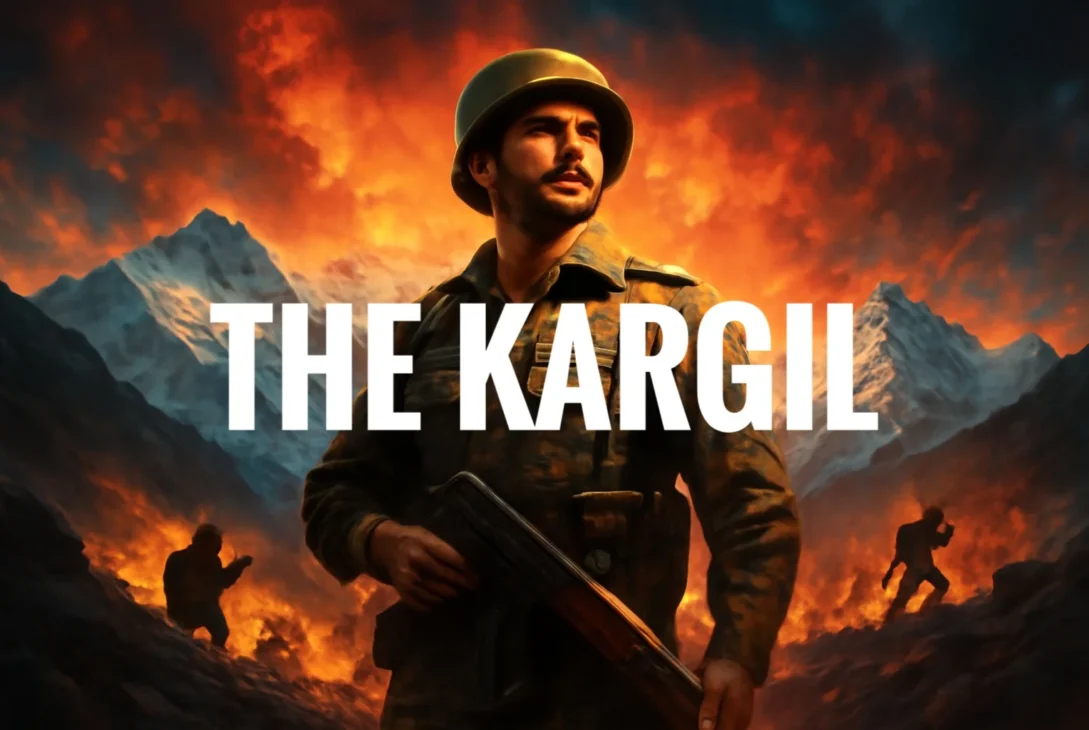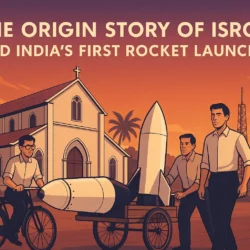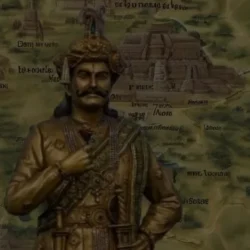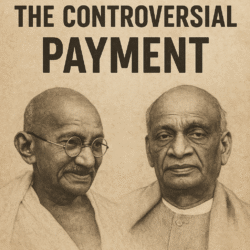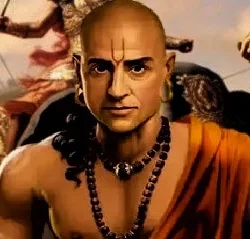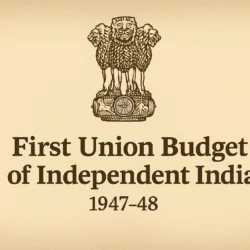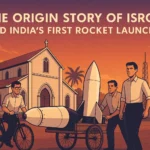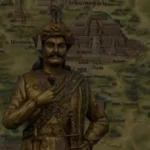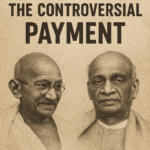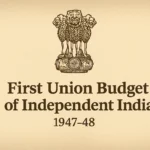The Kargil War, fought between India and Pakistan in 1999, was one of the most challenging and strategically complex conflicts in modern military history. The war, which lasted for more than three months, saw the brave soldiers of the Indian Army facing extreme conditions and overwhelming odds to protect their homeland. Their courage and sacrifice not only resulted in India’s victory but also proved a defining moment in the nation’s military history.
The Background of the Kargil War
The roots of the Kargil War can be traced back to the tensions between India and Pakistan after the 1971 war, which resulted in the creation of Bangladesh. Pakistan’s defeat in 1971 left a deep scar on its military psyche. General Pervez Musharraf, deeply dissatisfied with the loss, harbored resentment against India and plotted revenge for years. Musharraf’s rise to power in the late 1990s coincided with an increasingly volatile situation between India and Pakistan.
In 1984, India defeated Pakistan in the Siachen Glacier, further fueling Pakistan’s desire for retaliation. With both countries testing nuclear weapons in 1998, the possibility of a full-scale nuclear war became a real concern. However, diplomatic attempts to ease tensions, such as the Lahore Declaration signed by Indian Prime Minister Atal Bihari Vajpayee and Pakistani Prime Minister Nawaz Sharif in February 1999, failed to prevent the impending conflict.
The Infiltration and Beginning of the War
In May 1999, the peace efforts were shattered when Pakistan launched Operation Badr, an infiltration of Indian territory in Kargil. The Pakistani Army, under the leadership of Musharraf, aimed to capture key positions in the Kargil region, weaken Indian military positions, and force India into a diplomatic settlement over the Kashmir dispute.
The first signs of infiltration were spotted by a local shepherd, Tashi, who reported the movement of suspicious individuals. Initially, Indian troops assumed these infiltrators were Mujahideen, but soon realized that they were Pakistan Army personnel. By May 10, 1999, it became clear that Pakistan had infiltrated 150 kilometers into Indian territory, occupying strategic high-altitude posts that gave them an advantageous military position.
India’s Response: Operation Vijay
In response, the Indian Army launched Operation Vijay on May 10, 1999, to drive out the Pakistani infiltrators and regain control of the Kargil region. Led by General Ved Prakash Malik, the operation faced numerous challenges, including the difficult terrain, extreme weather conditions, and high-altitude warfare. Soldiers had to climb steep hills for hours, often without sufficient supplies or oxygen, in the process.
The first major success came on June 13, when Indian forces captured the Tolo Link, a strategic high point that had been occupied by Pakistan. The battle for Tolo Link was a fierce one, with hand-to-hand combat and heavy casualties on both sides. But the victory at Tolo Link provided the Indian Army with a morale boost and set the stage for further advances.
The Role of the Air Force and Navy
The Indian Air Force played a crucial role in supporting ground operations during the war. Operation Safed Sagar was launched to provide air support for the Army, targeting Pakistani positions in the Kargil region. Fighter jets such as the MiG-21, Mirage 2000, and Mi-17 helicopters were used for airstrikes, reconnaissance, and the delivery of supplies to Indian soldiers stationed at high altitudes.
The Indian Navy also contributed to the war effort by launching Operation Talwar in the Arabian Sea. This operation aimed to cut off Pakistan’s maritime trade and oil supply, exerting further pressure on Pakistan to withdraw its forces from Kargil. The Indian Navy’s success in this operation played a critical role in the overall victory.
Heroic Soldiers and Key Battles
The Kargil War saw countless acts of heroism by Indian soldiers. One of the most significant events was the battle for Tiger Hill, a strategic mountain peak that commanded the surrounding area. The Indian Army’s 18 Grenadiers, led by Lieutenant Balwant Singh, successfully scaled the vertical cliffs of Tiger Hill and forced the Pakistani forces to retreat. Despite heavy casualties, including the injury of soldier Yogendra Singh Yadav, the Indian Army raised the national flag atop the hill, symbolizing the victory.
Another key battle was the recapture of Point 5140, where Captain Vikram Batra, known as “Sher Shah“, led his troops to victory. His bravery during the assault earned him the Param Vir Chakra, India’s highest military award. Tragically, Captain Batra was killed in action shortly after his victory, but his courage and determination continue to inspire generations.
The International Impact and Diplomatic Pressure
The Kargil War was the first direct conflict between two countries with nuclear capabilities. As the war progressed, the international community grew increasingly concerned about the possibility of it escalating into a full-scale nuclear war. The United States, under President Bill Clinton, played a key role in pressuring Pakistan to de-escalate the conflict.
On July 4, 1999, after intense diplomatic pressure, Pakistan agreed to withdraw its troops from the Kargil region. By July 12, the Pakistani forces had completely retreated, and the conflict officially ended on July 26, when India regained full control over the area. The Kargil Vijay Diwas, celebrated on July 26 each year, commemorates the victory of Indian forces and the sacrifices made by the soldiers.
Conclusion
The Kargil War stands as a testament to the valor and determination of India’s armed forces. The bravery of soldiers like Captain Vikram Batra, Lieutenant Manoj Kumar Pandey, Major Rajesh Singh Adhikari, Major Vivek Gupta, Rifleman Sanjay Kumar, and Grenadier Yogendra Yadav, among many others, ensured that India emerged victorious. Their sacrifices not only secured the Kargil region but also sent a clear message to the world about India’s military strength.
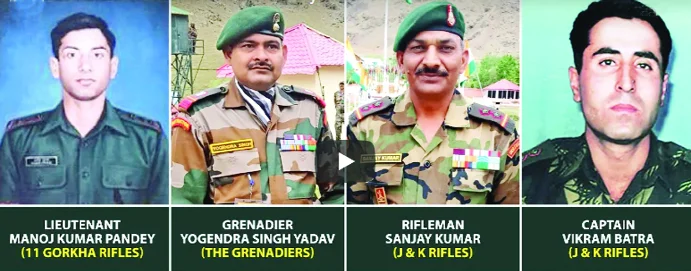
Today, the high peaks of Kargil still stand as silent witnesses to the courage of India’s soldiers, who gave their lives for the defense of the nation. As the country celebrates Kargil Vijay Diwas, we remember the indomitable spirit of these heroes and honor their memory for ensuring that India’s borders remain secure.
